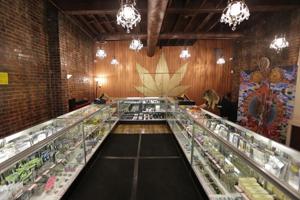Washington state ranked 39th in personal, economic freedom

(The Center Square) – According to a new Cato Institute report, “Freedom in the 50 States,” Washington state just barely managed to avoid being in the bottom 10 of states in terms of personal and economic freedom.
Washington ranked 39th overall, lower than several other states in the West, including Nevada, which ranked No. 3, Arizona at No. 9, Utah at No. 2, and Idaho – Washington state’s neighbor to the east – at No. 10.
Still, the Evergreen State fared better than other western states, including its neighbor to the south, Oregon, which ranked No. 46, and California at No. 48, in the latest edition of the libertarian think tank’s report released on Wednesday.
By individual categories, Washington state scores 32nd in fiscal policy, 41st in regulatory policy, and 24th in personal freedom.
“Washington doesn’t perform well on any dimension of freedom but managed to avoid the bottom 10 states overall in 2019 after dipping to 10th worst in 2017,” the report states. “Although Washington has had one of the more regulated economies in the United States for a long time, it has benefited from the fact that California and Oregon have had the same. However, it is a far cry from comparative regulatory heaven in neighboring Idaho.”
The report, authored by William Ruger and Jason Sorens, analyzes state and local government intervention across more than 230 policy variables, including taxation, debt, eminent domain laws, occupational licensing, drug policy, and educational choice.
Because Washington state lacks an income tax, the report notes, “its fiscal policy is fairly good.”
Earlier this year, the Washington State Legislature passed and Gov. Jay Inslee signed a law that imposes a 7% tax on capital gains above $250,000 for individuals and joint filers from the sale of assets such as stocks and bonds. Exceptions include the sale of real estate, livestock, and small family-owned businesses.
The new law – which some critics contend is effectively a progressive income tax – is set to go into effect on Jan. 1, 2022.
The report goes on to note, “Washingtonians do not enjoy much freedom to use their own land. Local and regional zoning and planning rules have become quite strict. Eminent domain abuse is almost unchecked. Renewable portfolio standards have been tightened. Washington is one of the worst states on labor-market freedom. It lacks a right-to-work law, limits choices for workers’ compensation programs, and has extremely high minimum wages relative to its wage base. It added paid family leave in 2017.”
The state Employment Security Department recently announced a 50% increase for the Paid Family and Medical Leave payroll tax. Effective Jan. 1, 2022, the tax will go up from 0.4% to 0.6% to help pay for up to 18 weeks of family and medical leave to some full- and part-time workers.
That’s on top of a new 0.58% payroll tax to fund the “WA Cares” program also set to go into effect on the same day. The long-term care program was signed into law by Inslee in 2019. Beneficiaries will be eligible to begin collecting in 2025.
With respect to crime and personal freedom, there was some good news, per the report.
“Washington’s criminal justice policies are among the best in the nation,” the report states. “Incarceration and victimless crime arrest rates are far below national averages and fell substantially even before marijuana legalization. The state also reduced the cost of prison phone calls by nearly half in 2016. It is a top state for marijuana freedom.”
New Hampshire, with a state motto of “Live Free or Die,” was ranked No. 1 in the nation in terms of personal and economic freedom, followed by Florida, Nevada, Tennessee, and South Dakota.
New York was deemed the least free state. Hawaii, California, New Jersey, and Oregon joined the “Empire State” as the worst in terms of fiscal, regulatory, and personal freedom.
Disclaimer: This content is distributed by The Center Square
